 Petzlover
Petzlover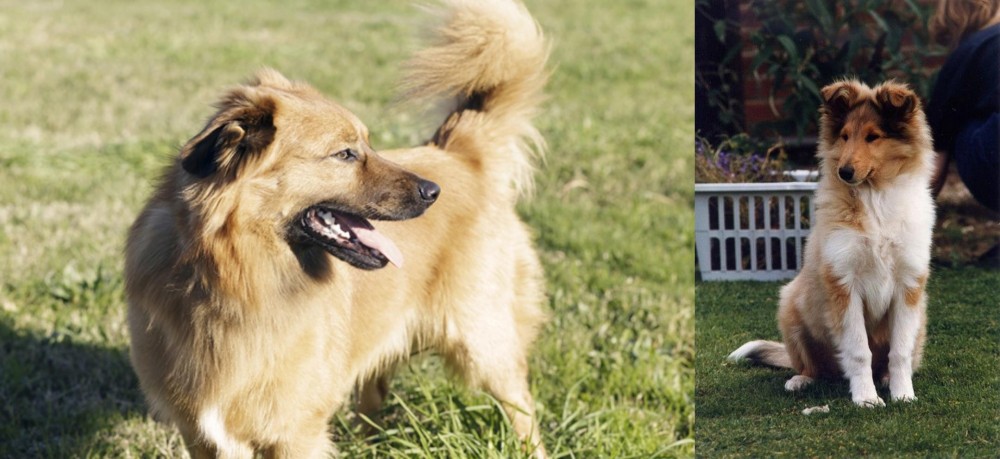 Basque Shepherd is originated from Spain but Rough Collie is originated from United Kingdom. Both Basque Shepherd and Rough Collie are of same height. Both Basque Shepherd and Rough Collie are having almost same weight. Both Basque Shepherd and Rough Collie has same life span. Both Basque Shepherd and Rough Collie has almost same litter size. Both Basque Shepherd and Rough Collie requires Moderate Maintenance.
Basque Shepherd is originated from Spain but Rough Collie is originated from United Kingdom. Both Basque Shepherd and Rough Collie are of same height. Both Basque Shepherd and Rough Collie are having almost same weight. Both Basque Shepherd and Rough Collie has same life span. Both Basque Shepherd and Rough Collie has almost same litter size. Both Basque Shepherd and Rough Collie requires Moderate Maintenance.
 The Basque Shepherd is one of the oldest dog breeds. With this Spanish dog, you’ll find paintings dating back 12,000 years ago. The Basque Shepherd is known as a landrace breed, which means the dog hasn’t gone through the same selective breeding programs as what other breeds have. Landrace breeds have more variations in appearance and temperament than regular breeds.
The Basque Shepherd is one of the oldest dog breeds. With this Spanish dog, you’ll find paintings dating back 12,000 years ago. The Basque Shepherd is known as a landrace breed, which means the dog hasn’t gone through the same selective breeding programs as what other breeds have. Landrace breeds have more variations in appearance and temperament than regular breeds.
The Basque Shepherd has 2 distinct varieties, the Gorbeiakoa and the Iletsua. The smooth-haired Gorbeiakoa has a softer coat that is fairly short while the rougher-haired Iletsua has a lighter coloured coat, and unlike the Gorbeiakoa, the ears are not typically erect.
Even though this is an ancient breed of dog, only the Royal Canine Society of Spain recognizes the breed with the two varieties, and in January 1996, the two breeds - Iletsua and Gorbeikoa – were recognized.
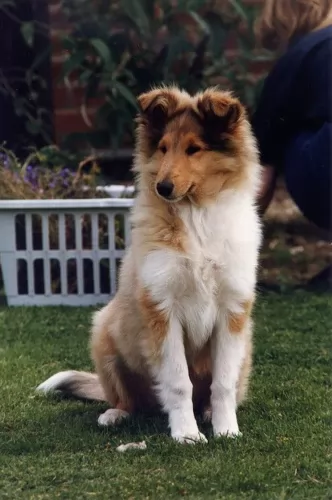 Many people have seen the movie ‘Lassie’, and of course this movie made the Collie popular and famous.
Many people have seen the movie ‘Lassie’, and of course this movie made the Collie popular and famous.
Apart from the Rough Collie, you also get the Smooth Collie. The Rough Collie’s origins start in the 1800’s in Scotland and Wales but unfortunately, the Rough Collie's exact origins are shrouded in lack of information.
These dogs were used as herding dogs in real-life and in movies, and it was in 1879 that the first English Rough Collie was imported to the USA, but it is the UK from whence the dog comes.
 The Basque Shepherd is a strong, well proportioned dog with brown eyes and medium sized ears, which sometimes have folds. This medium-to-large dog has a beautiful fawn coat of medium-length hair that can be straight or slightly wavy. He has a long feathery tail that will wag readily when he sees his owner. You’ll find other colors for the Basque Shepherd shared between the two varieties - a yellow orange or copper coat with other shades being red, blue and black. His hair is shorter on the head and he doesn’t battle with hair over the eyes.
The Basque Shepherd is a strong, well proportioned dog with brown eyes and medium sized ears, which sometimes have folds. This medium-to-large dog has a beautiful fawn coat of medium-length hair that can be straight or slightly wavy. He has a long feathery tail that will wag readily when he sees his owner. You’ll find other colors for the Basque Shepherd shared between the two varieties - a yellow orange or copper coat with other shades being red, blue and black. His hair is shorter on the head and he doesn’t battle with hair over the eyes.
The Basque Shepherd is a highly intelligent dog and also very energetic. Of the two different kinds of Basque Shepherd, it is the Gorbeiakoa which is the more outgoing. The dogs will require a firm owner and they thrive on the discipline when it is combined with lots of with lots of exercise and activities.
The Basque Shepherd is generally friendly with people, if not a little reserved with strangers. He gets on well with children and other pets in the home, although socialization and training will be necessary to bring out their best.
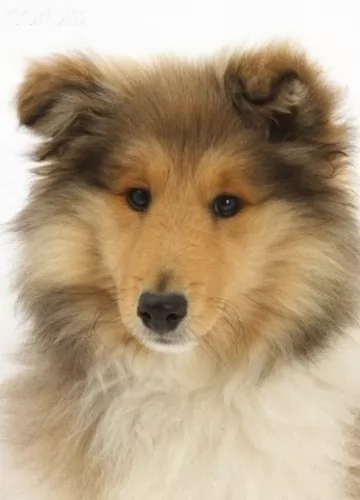 The Rough Collie or Long-haired Collie is considered to be a medium to large sized dog with a long, double-layer coat.You’ll find the coat mainly as tri-colored – white, fawn and dark brown and black.
The Rough Collie or Long-haired Collie is considered to be a medium to large sized dog with a long, double-layer coat.You’ll find the coat mainly as tri-colored – white, fawn and dark brown and black.
The Rough Collie stands at between 51 to 61cm in height and weighs between 18 and 30kg. The long, thin muzzled dog has semi erect, semi-floppy ears, sweet, gentle eyes and a long, plumed tail.
Rough collies are loving, gentle dogs who thrive on spending time with their human families. Their kindly nature makes them good therapy dogs.They don’t do well when left in the back yard on their own day after day. They’re social dogs who love playing with the children in the home and they get on well with other family pets.
The Rough Collie is highly intelligent and he is easy to train. With training and socialization he becomes so well behaved you can take him anywhere.
 The dog is well suited to being a family pet, loving to spend time with family, being a people-oriented breed. He gets on well with children as well as other pets in the home, but can be reserved with strangers.
The dog is well suited to being a family pet, loving to spend time with family, being a people-oriented breed. He gets on well with children as well as other pets in the home, but can be reserved with strangers.
He doesn’t have an aggressive nature, and yet he does what it takes to protect his beloved human family.
He is full of energy, hardy and tough. He loves his human family and wants to be included in all their activities. He is energetic though and as a responsible dog owner, you want to make sure that your Basque Shepherd has enough space to run.
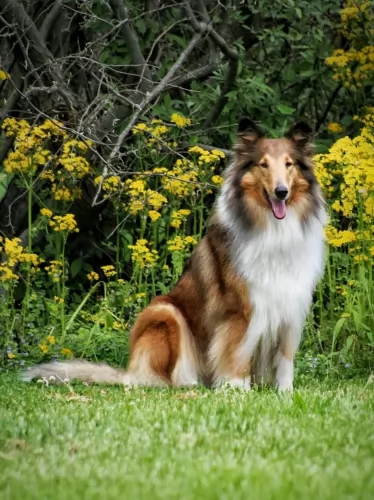 The Rough Collie is such an intelligent dog, but he is loving and devoted too. He can slot into life in the city or countryside because all he really wants is to be close to his human family.
The Rough Collie is such an intelligent dog, but he is loving and devoted too. He can slot into life in the city or countryside because all he really wants is to be close to his human family.
Wherever you live with your Rough Collie though, he will need to be well exercised. He is sweet but slightly timid and will want to be with a family that isn't too noisy in terms of lots of shouting.
People who have had Collies say these dogs make he most awesome pets, and in the right environment these wonderful intelligent dogs will make splendidly loyal, loving pets and companions,
 Because this is an ancient breed, the Basque Shepherd doesn’t have to contend with genetic health problems such as more modern breeds. Just like other dogs though, he could be prone to certain conditions such as hip dysplasia, eye problems, ear infections and cancer. As a larger breed, he may also be prone to bloat.
Because this is an ancient breed, the Basque Shepherd doesn’t have to contend with genetic health problems such as more modern breeds. Just like other dogs though, he could be prone to certain conditions such as hip dysplasia, eye problems, ear infections and cancer. As a larger breed, he may also be prone to bloat.
Breeds with floppy ears, such as the Basque Shepherd will be more prone to developing ear infections. To prevent infection, keep his ears clean and dry. If you’re unsure, the vet can guide you how- and what to do.
This is a disease which is common to other dog breeds too and not just the Basque Shepherd. This condition affects the hip joints and can result in chronic pain for the dog and also lameness. Checking your dog’s weight is important and the pain can be managed with medication.
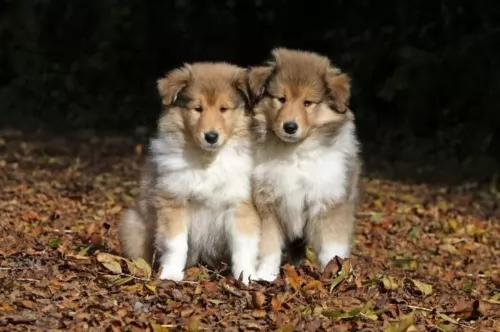 The Rough Collie can reach 12 to 14 years of age with good care. There are always some health issues to be aware of such as hereditary eye diseases. Also, as with most larger breeds, hip dysplasia is always a concern.
The Rough Collie can reach 12 to 14 years of age with good care. There are always some health issues to be aware of such as hereditary eye diseases. Also, as with most larger breeds, hip dysplasia is always a concern.
Other illnesses to look out for include cancer, skin allergies, bloat and Grey Collie Syndrome. As a responsible dog owner, get your pet to the doctor when you notice a change in his behavior – tiredness, vomiting, lethargy, unusual lumps, swelling and a feeling of depression.
This is a form of canine cyclic neutropenia which affects the Collie breed. There is a low concentration of neutrophils in the blood. It can be hereditary or it can develop because of a side effect of chemotherapy for instance. It is essentially caused by a defect in the bone marrow stem cells. Affected dog will always battle with gastrointestinal problems and infections of the eye.The life expectancy of a Collie with this ailment will be less than 3 years.
 This is a medium to large breed dog and he should therefore be fed a high quality food which has been formulated for medium to large breeds. Because he is a herding dog, you might want to also look at an active-dog or working-breed formula to supply him with that much needed energy.
This is a medium to large breed dog and he should therefore be fed a high quality food which has been formulated for medium to large breeds. Because he is a herding dog, you might want to also look at an active-dog or working-breed formula to supply him with that much needed energy.
The Basque Shepherd’s coat is lush and long with either straight or wavy hair. Regular brush at least twice a week will maintain the coat, get rid of loose hair and prevent fleas.
The Basque Shepherd is an intelligent breed that will respond well to socialization and training. He is a breed that loves sports too because of this very high energy levels. You need to be careful with the Basquae Shepherd around small children, not because he is aggressive in any way, but because he is highly active, and his exuberance and boisterous antics could see him unintentionally knocking over small children.
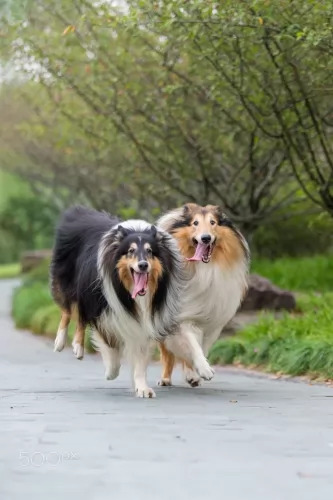 Your Rough Collie does shed so he will require a good brush twice a week. The long silky hair can matt so this grooming session will be important.
Your Rough Collie does shed so he will require a good brush twice a week. The long silky hair can matt so this grooming session will be important.
Your film-star collie is an active, athletic dog. He has always been used to herding sheep, and instinctively he wants to be active. His bright eyes are always alert to some action, and his exercise needs go beyond just allowing him to run around in your back yard.
He is the kind of dog that wants something more energetic such as going on hikes or long walks and running after sticks or balls on the beach.
A Collie is an energetic dog and will require the best dog food there is. If you give him commercially manufactured food make sure it is the right food for his size, his breed and his energy levels.
To add some variety, feed him some home-made food occasionally which can be added to his dry kibble twice a week. Boiled chicken, brown rice or pasta and spinach, sweet potatoes and carrots are a healthy choice for your pet. Try and feed him some raw meat occasionally. Ensure there is always a bowl of fresh, cool water for him.